One of the best parts of serving on the International Advisory Board for the International Quilt Museum (IQM) is the hours we spend during our annual meeting in Lincoln, Nebraska, viewing a selection of quilts that have been acquired for the permanent collection over the past year. During our June 2025 visit, I did a double take when the artist statement for one of those quilts, Illáyyasha’ Katihma (We Are Still Here) by Emma Alcazar, was read aloud. In her statement, Emma wrote that she was inspired to make this quilt after hearing a lecture in 2023 on Native American quilt history. I was the one who presented that lecture.
Emma is an enrolled citizen of the Chickasaw Nation. She grew up in Oklahoma but now lives in Powhatan, Virginia, a small, rural town situated between the James and Appomattox Rivers, about an hour outside of Richmond. Her reaction to my lecture was to make a piece of art that boldly stated her Chickasaw culture is not just about history, but rather, “we are still here.” Her quilt found its way to the IQM collection via a purchase from the Modern Quilt Guild’s QuiltCon event in Phoenix, Arizona, in February 2025.
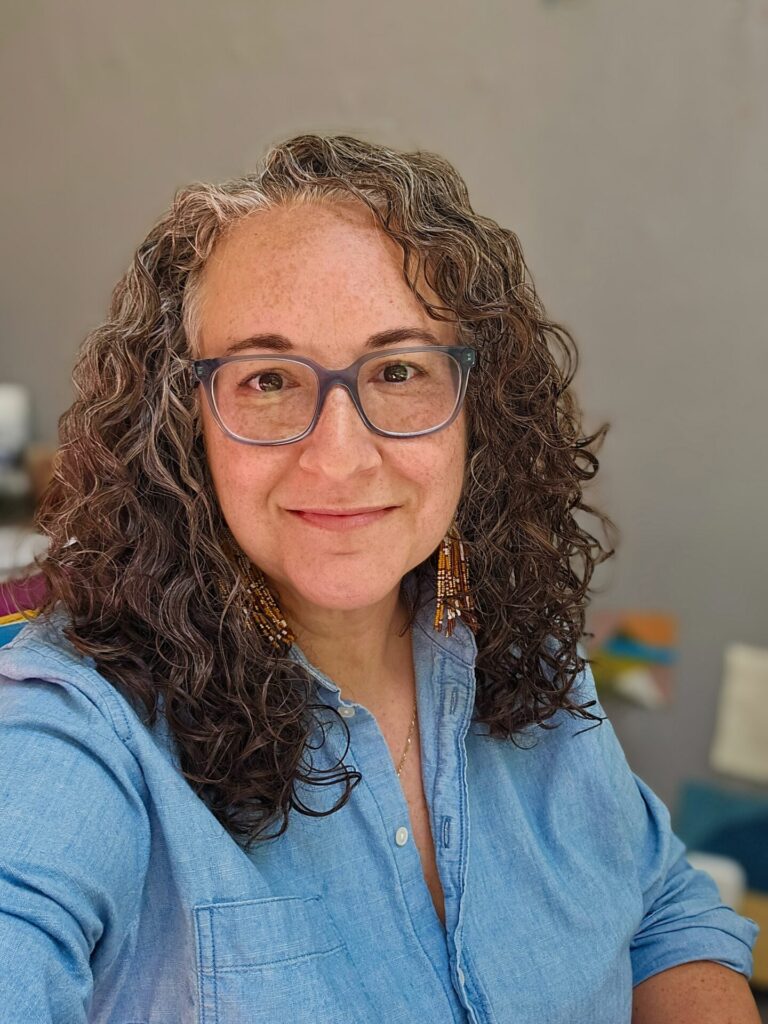
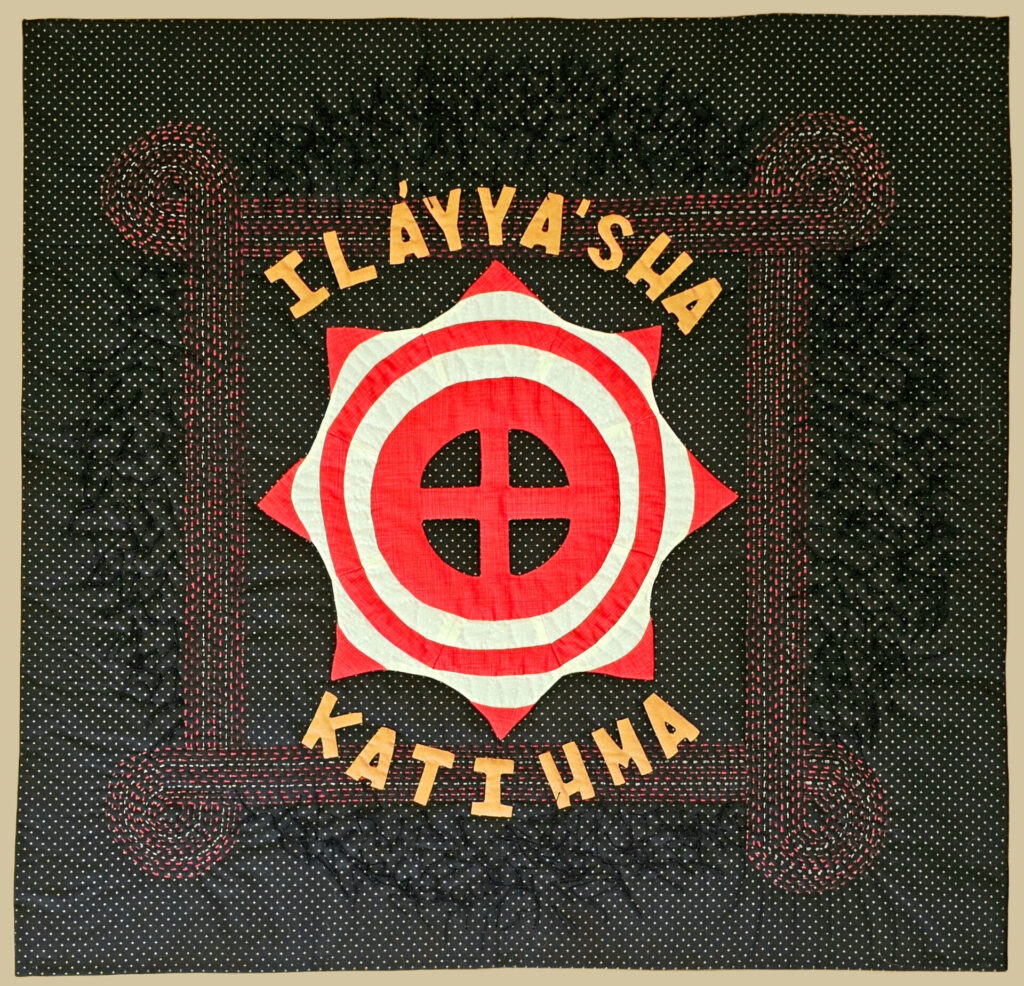
After the IQM board meeting, I reached out to Emma, and an interesting thing happened. She was not aware that the IQM had acquired her quilt. She knew it had sold, but the details of the acquisition had not made their way to her yet. So I was the first to deliver the good news.
“I was blown away to learn that my quilt is in the IQM collection,” Emma shared. “So amazing. It’s truly an honor, and I am so proud.”
Emma is very interested in language, and in July 2025, she completed a two-year online educational program that is striving to revitalize the Chickasaw language. This intensive program, which was sponsored by the Chickasaw Nation, is what enabled her to find the right words for We Are Still Here.
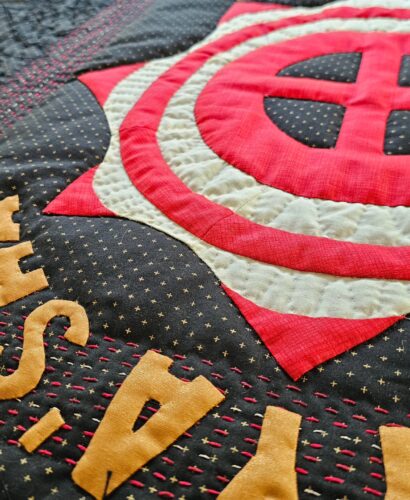
“When I got the idea of wanting to say, ‘We are still here’ on this quilt, I didn’t want to just pick words out of a dictionary. I really wanted to represent the language and especially the symbols that were found in the original Chickasaw homeland before removal,” Emma said. “I asked several people how they would say this phrase, and eventually, I was able to join the ancient symbols with the right words.”
Even though the official program has ended, Emma and her fellow students plan to keep meeting online and conversing together in Chikashshanompa, which is the name of the traditional Chickasaw language. Emma hopes to one day teach others this language as well. Interestingly, there are several elders in Emma’s family who remember hearing the language as young children, but they are not fluent. Their parents encouraged them to speak English in order to integrate into the larger society.
Illáyyasha’ Katihma (We Are Still Here) is not the first word quilt Emma has made, and based on her study of this fading language and the drive to help keep it alive, it certainly won’t be the last.
“When I get an idea for a word quilt, the ideas bounce around in my head for a while. Pretty soon, I settle on certain phrases that I can’t let go of,” she said.
Emma alternates between making art quilts for the wall and quilts to be used, and the duality of these two genres is something she enjoys. She made a utilitarian quilt titled Billi’ya’, which translates as “forever always.” “This quilt rewards you for looking closely because the words oblaashaash (yesterday), himmaka (now), and onnakma (tomorrow) are stitched in a metallic thread,” she said.
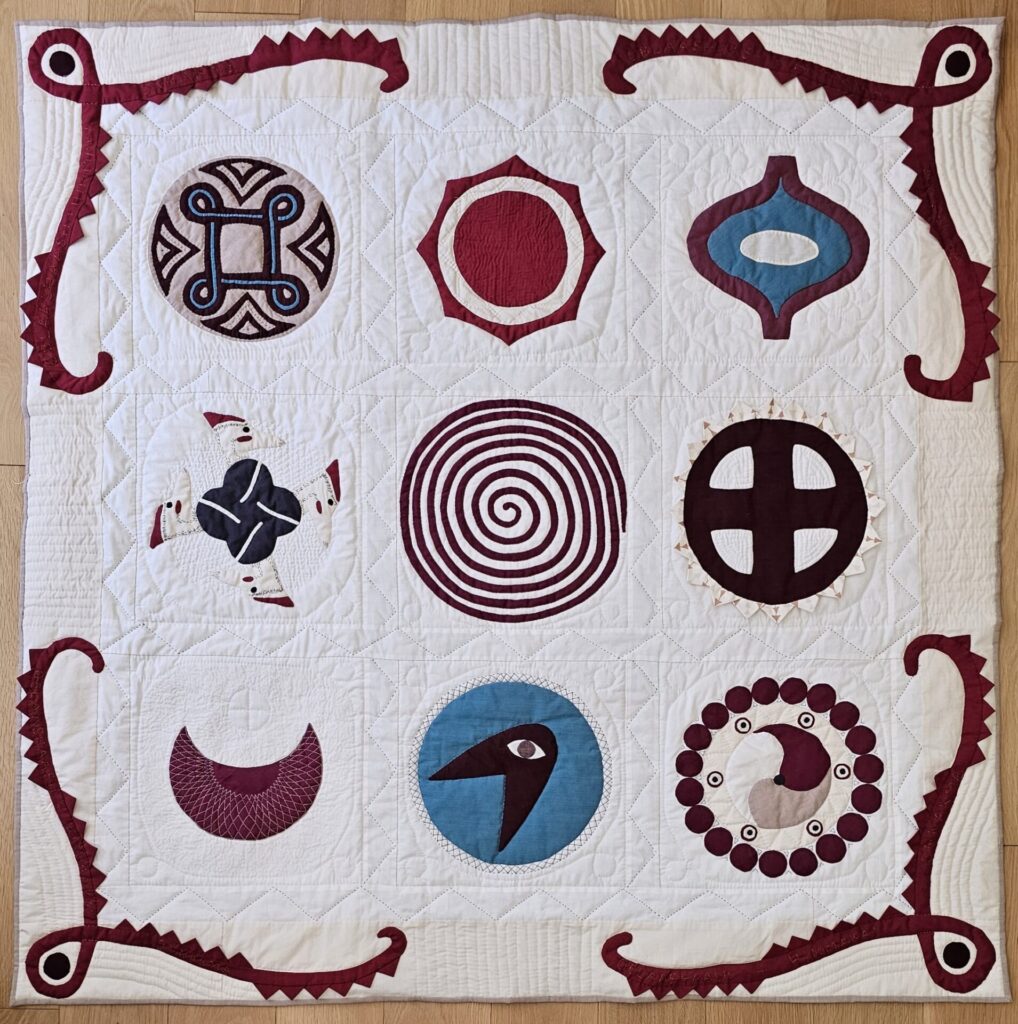
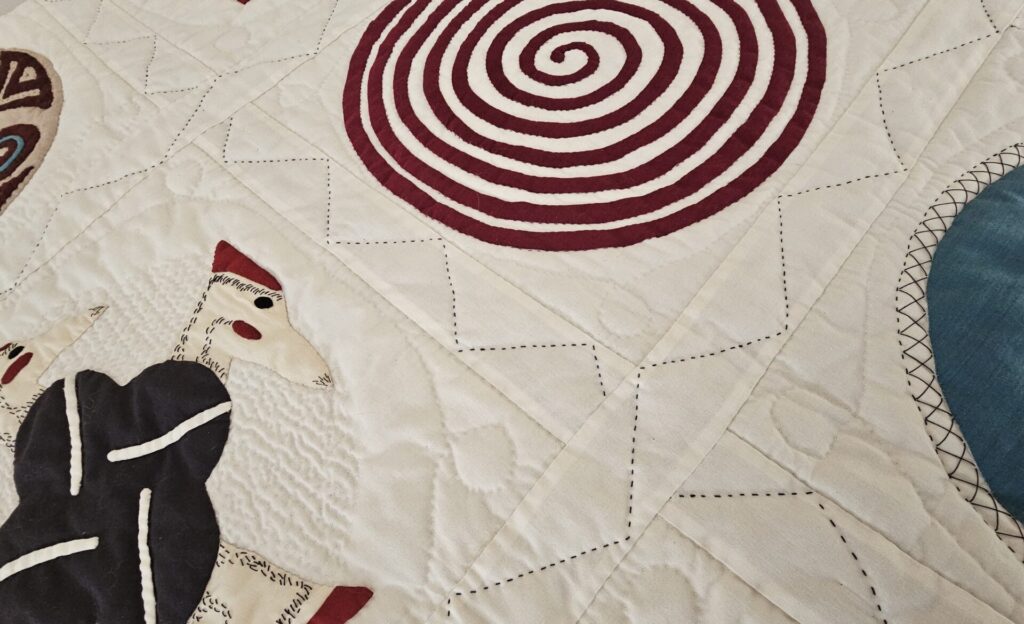
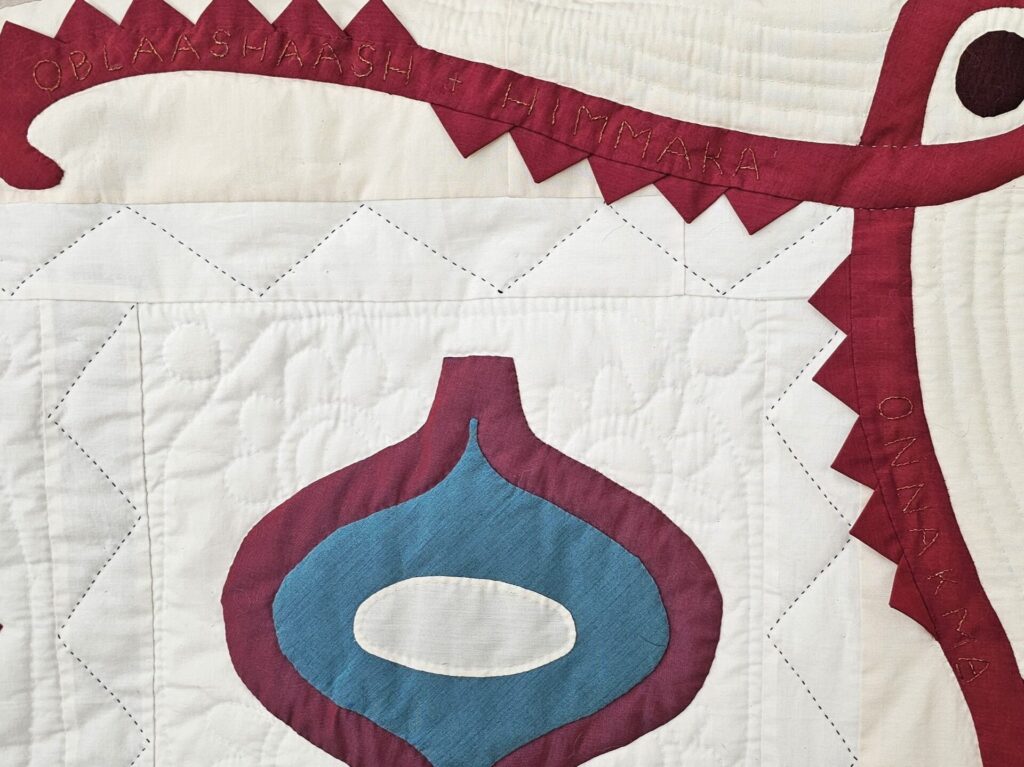
A baby quilt that features the Chickasaw language alphabet had always been on her to do list, and her language program inspired her to make one of those, too. “The best way to grow the language is to teach it to children,” Emma said. “But I didn’t know anyone with a baby. Then, halfway through my course, another student had a baby, so she got the baby quilt. I had so much fun making the baby quilt and talking to people in class about the right words to use.”
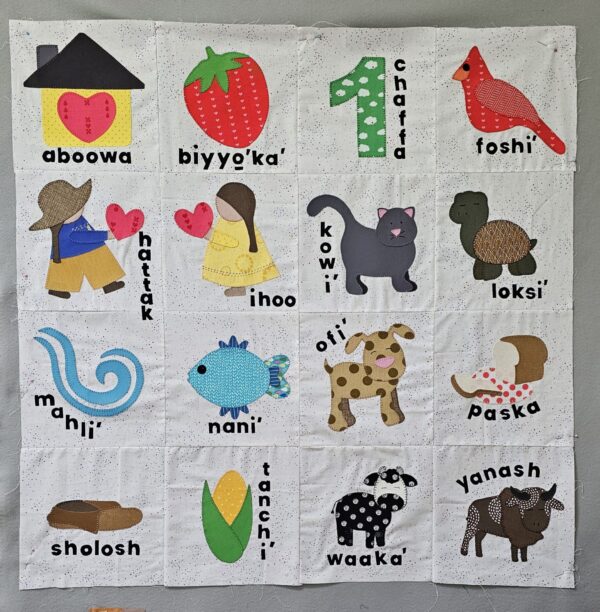
Emma’s very first quilt, back in 2001, was completely different from her current themes. “I was in a sorority in college and had a ton of sorority shirts, so I decided to make a T-shirt quilt. I even bought a beginner Singer sewing machine for that project. I still have the quilt, and it is a big mess. I used a big poly batting and fleece for the backing. It’s a terrible quilt,” she said, laughing.
But as often happens, the quilting seed was planted. Emma took a break from quiltmaking for about 10 years while she took care of all the things life requires of us, and during the COVID-19 pandemic, she picked it back up again. She also used the time to learn needle-turn appliqué.
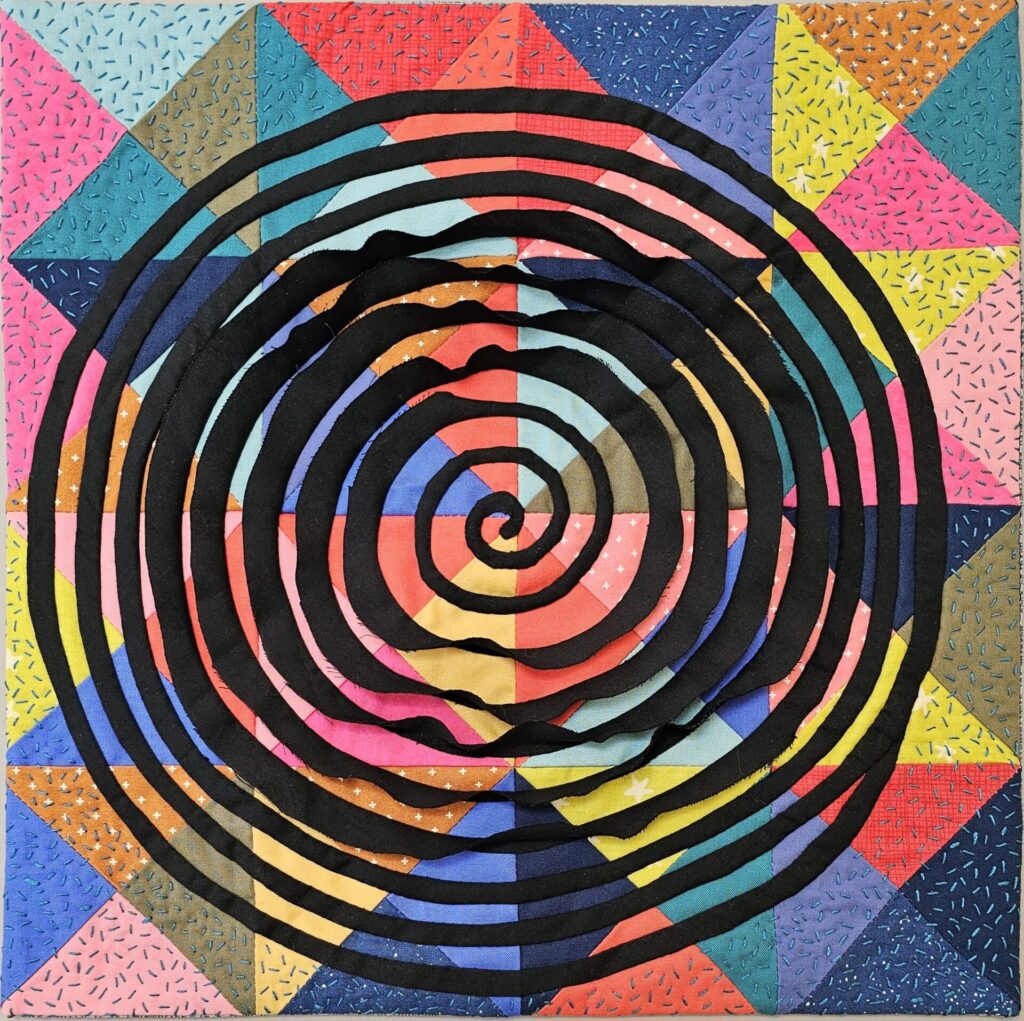
Emma hails from a long line of quiltmakers, including her great-grandmother, grandmothers, and aunts. “My great-great-grandmother, Minnie Keel Liddell, a Chickasaw woman born in the 1890s, overcame incredible obstacles in her life, including winning a state supreme court battle in 1936 to save her family land. From the time she was a young girl, my grandmother vividly remembers watching her grandmother fold and cut fabrics for quilting,” Emma said. She has one of those family quilts in her possession today. It is a Chickasaw Star quilt that Minnie made for her granddaughter (Emma’s grandmother) in 1975.
“I’ve thought a lot about my grandmothers and aunts that sewed quilts,” Emma said. “Quilting is such a personal, enjoyable art form. You can sit and make. And I love the connection it offers, when you can give what you make to other people, or it can simply keep you warm. It is a shared tradition through time, and I love that.”
Emma’s love of language and her choice to express that emotion through quilting will ensure that the long line of quiltmakers in her family, as well as the traditional Chickasaw language, will live on through her art. After all, Emma wants the world to know Illáyyasha’ Katihma (We Are Still Here).
Teresa Duryea Wong is a writer, quiltmaker, and antique quilt collector, as well as a member of the International Advisory Board of the International Quilt Museum. Learn more on her website.
Sign up for our newsletter to receive exclusive offers, news, and more!